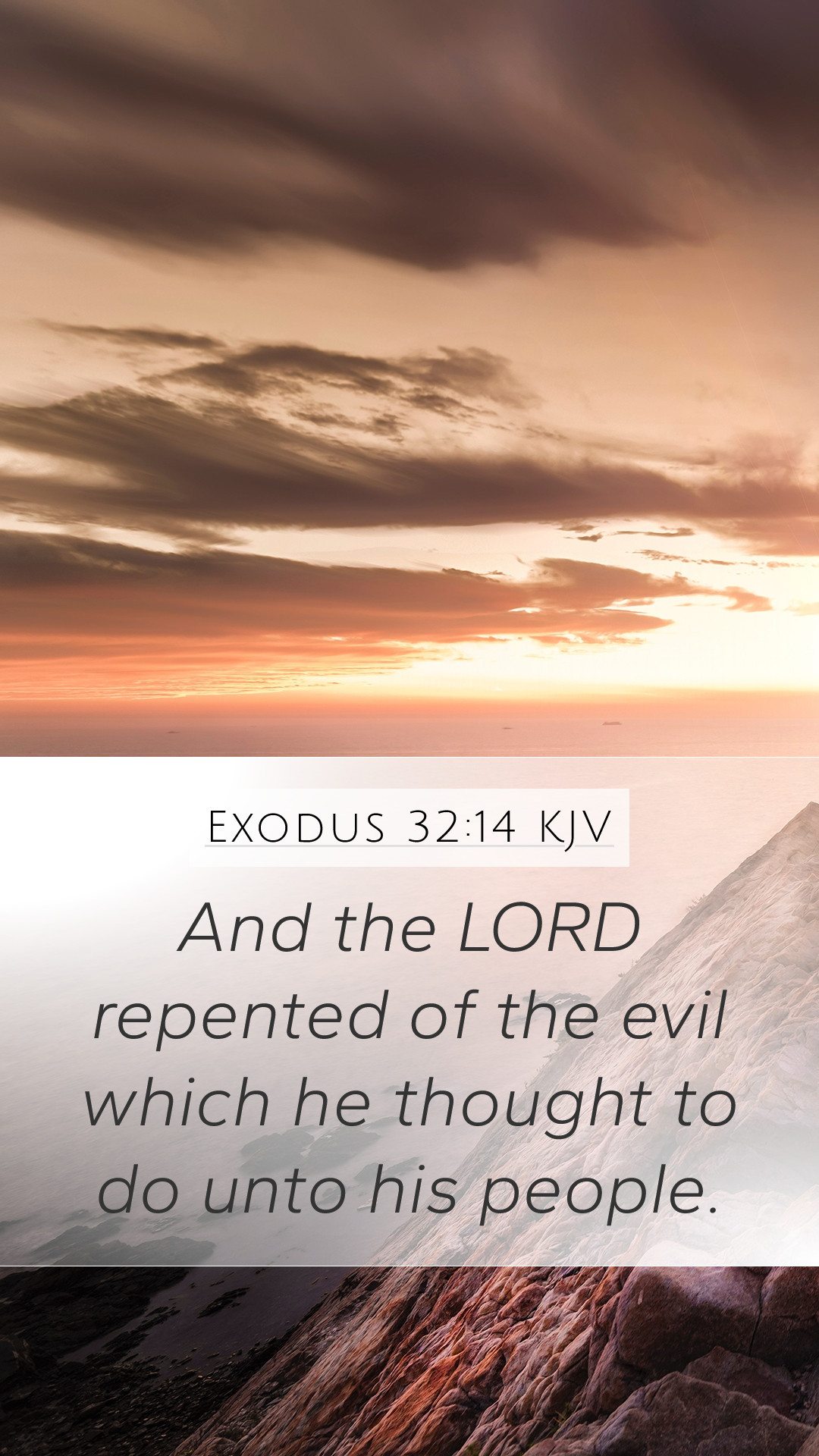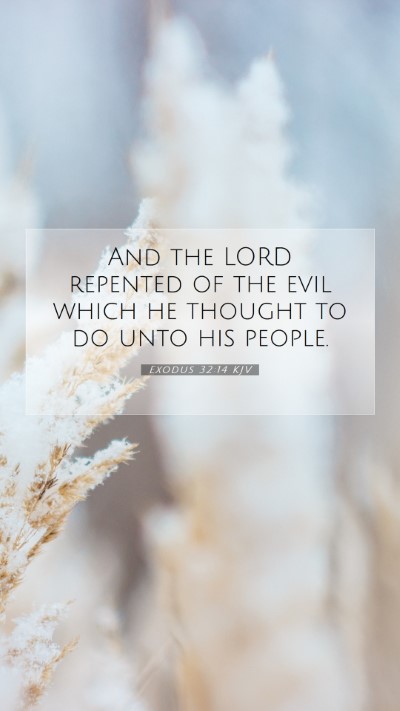Exodus 32:14: Overview and Significance
Exodus 32:14 states, "And the Lord repented of the evil which he thought to do unto his people." This verse encapsulates a profound moment in the relationship between God and His people, showcasing divine mercy and the dynamic nature of God's interactions with humanity. Understanding this verse involves delving into the biblical narratives, the character of God, and the significance of repentance within Scripture.
Interpretation of Exodus 32:14
This verse occurs in the context of Israel’s sin with the golden calf. When Moses ascended Mount Sinai to receive the Ten Commandments, the people grew impatient and fashioned an idol for themselves. God, witnessing their idolatry, expresses His intent to destroy them and raise a new nation through Moses. Yet, after Moses intercedes on behalf of the Israelites, God chooses to withhold judgment.
- Moses’ Intercession: The vital role of Moses as an intercessor is evident. The commentary by Matthew Henry highlights that Moses’ plea for mercy demonstrates the power of prayer and intercession. He argues that God's justice must be balanced with mercy.
- The Nature of God: God's statement that He "repented" does not imply error or change in His divine essence, but rather reflects His responsiveness to human actions. According to Albert Barnes, this shows God's willingness to engage with His creation and adapt His responses based on their actions.
- The Concept of Repentance: Adam Clarke explains that God's "repentance" reflects a change in His actions due to intercession, not a change in His mind or character. His decisions are not arbitrary; they are influenced by the circumstances and the behavior of His people.
Biblical Exegesis and Application
The interpretation of Exodus 32:14 can be approached through various lenses of biblical exegesis, showcasing how it applies to contemporary life:
- The Power of Prayer: This verse reinforces the idea that prayer can influence God’s actions. Believers today can take comfort in knowing their prayers hold weight, similar to how Moses’ intercession impacted God’s decision.
- God’s Mercy and Judgment: Understanding this verse allows for a deeper comprehension of God’s nature. It emphasizes that although God is just, He is also merciful, opening discussions in Bible study groups about His character.
- Lessons for Modern Believers: In applying this verse to daily life, individuals are encouraged to seek forgiveness and intercede for others. The implications of repentance and mercy resonate strongly in Christian teachings.
Connection to Other Scriptures
Exodus 32:14 relates to several other biblical passages that further illuminate its meaning:
- Genesis 18:23-33: Abraham intercedes for Sodom, demonstrating God's willingness to relent based on intercessory prayer.
- Jeremiah 18:7-10: God speaks of changing His plans for nations based on their actions, echoing the themes of divine responsiveness.
- James 5:16: The prayer of the righteous person is powerful and effective, affirming the importance of intercession in God’s plans.
Conclusion
In summary, Exodus 32:14 serves as a pivotal scripture that speaks to the relationship between God and humanity, showcasing His mercy in the face of judgment. This verse invites deep theological reflection and offers rich insights for Bible study groups, facilitating conversations around prayer, repentance, and God’s character. Understanding such verses enhances one’s overall Bible study insights, contributing to a more profound comprehension of Scripture as a whole.


